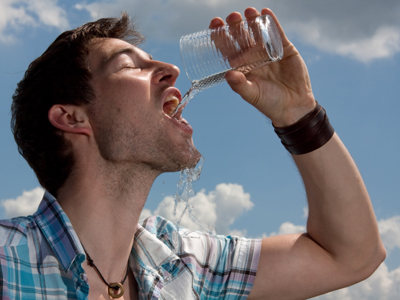
Water
In this GCSE Chemistry quiz we look at some of the factors which affect how well substances are dissolved in water. We also examine ions dissolved in impure water, hard water and limescale.
Water, Earth's most abundant natural resource, is vital for all life. The first life on Earth began in the water and remained there for millions of years until the Earth had an ozone layer and plants and animals had evolved sufficiently to colonise the land. Elsewhere in the Solar System, space probes have been looking for signs of water. On Mars, there are sedimentary rocks that seem to have been formed under water along with valleys that seem to have been carved by running water. Enceladus, one of the moons of the planet Saturn, has water geysers at the south pole and further research has confirmed that there is a liquid water ocean beneath an icy outer crust. Scientists also believe that an ocean, also beneath an icy crust, exists on one of the moons of Jupiter - Europa. It is possible that another of Jupiter's moons has an ocean underneath its icy outer crust.
Ready for more?
not all...
quizzers. Try to win a coveted spot on our Hall of Fame Page.







